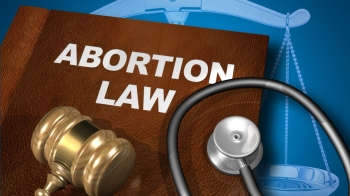
.png) Dr Suresh Mathew
Dr Suresh Mathew

The cry of the unborn is inaudible; it is soundless. Only those who can listen to the sound of silence can hear it; feel its intensity; and respect their right to be born and to live. The medical termination of pregnancy is the negation of this right; it is the ultimate injustice to the ones who cannot stand for their right. The amendment to the MTP Act legalizing abortion up to 24 weeks is nothing but killing a six-month-old child in the womb. The existing Act had permitted abortion only up to 20 weeks. The changes in the Act have given more leeway to those who are looking for a way out to get rid of an ‘unwanted child’ in the womb itself, clutching at the last straw of a more flexible and viable law.
The existing Medical Termination of Pregnancy (MTP) Act, 1971 is immoral and unethical to the core as it denies the right to life of an unborn child who is defenceless and voiceless. The amendment has made the law more unacceptable as it is akin to killing a foetus which is capable of surviving outside the mother’s womb as has been proved in innumerable cases. The counter contention that the law and its amendment are meant to do justice to women’s right to privacy and choose their offspring is weird as it is achieved by snuffing out innocent human beings. No one relegate to oneself the right to terminate someone else’s life merely because the latter cannot decide on it. Hence, ethically and morally abortion is an abominable act, even if it is made permissible legally.
No religion permits killing of an unborn child irrespective of the circumstances leading to it. All religions take a ‘pro-life’ stance and Christianity is in the forefront of taking an uncompromising stand. Encyclicals of Popes and Church teachings stand a testimony to it. A woman is the protector of her unborn child; but the law and its amendment give her freedom to eliminate the child till the pregnancy reaches 6 months. Though there are certain conditions attached to it, they are only small hurdles in terminating pregnancy. Some of the conditions like ‘risk to the life of the pregnant woman or grave injury to her physical or mental health’ are subject to a doctor’s interpretation of the situation and they need not be based on objective criteria. In fact, the amended provisions make MTP easier as only one physician’s opinion is required, instead of two as mandated earlier, for termination of pregnancy up to 20 weeks. Opinion of two registered medical practitioners is required only for pregnancy of 20 to 24 weeks.
The existing MTP Act and its amendments might be legally tenable, but they are untenable on moral and ethical grounds. By leaving the decision to the wish of a woman and the opinion of physicians, the right of the unborn has been greatly impeded. The ‘unborn’ child too is a stakeholder in the matter, but it has been ignored and disregarded. Moreover, on religious ground, life is a gift from God and human beings have no right to take it away.